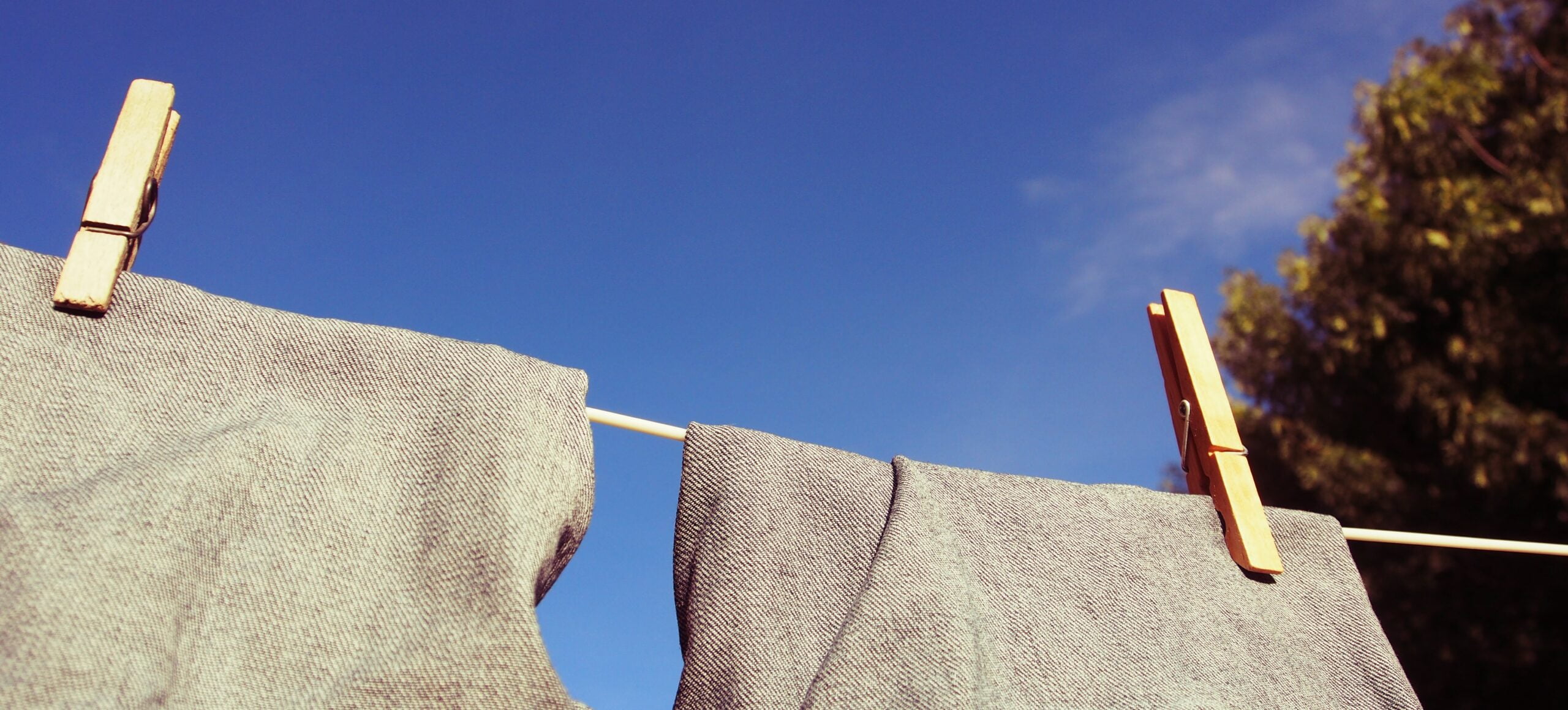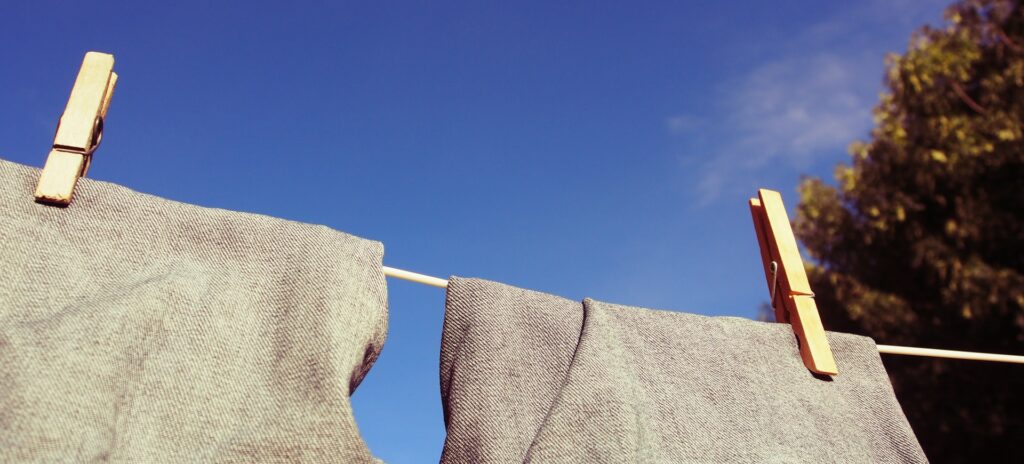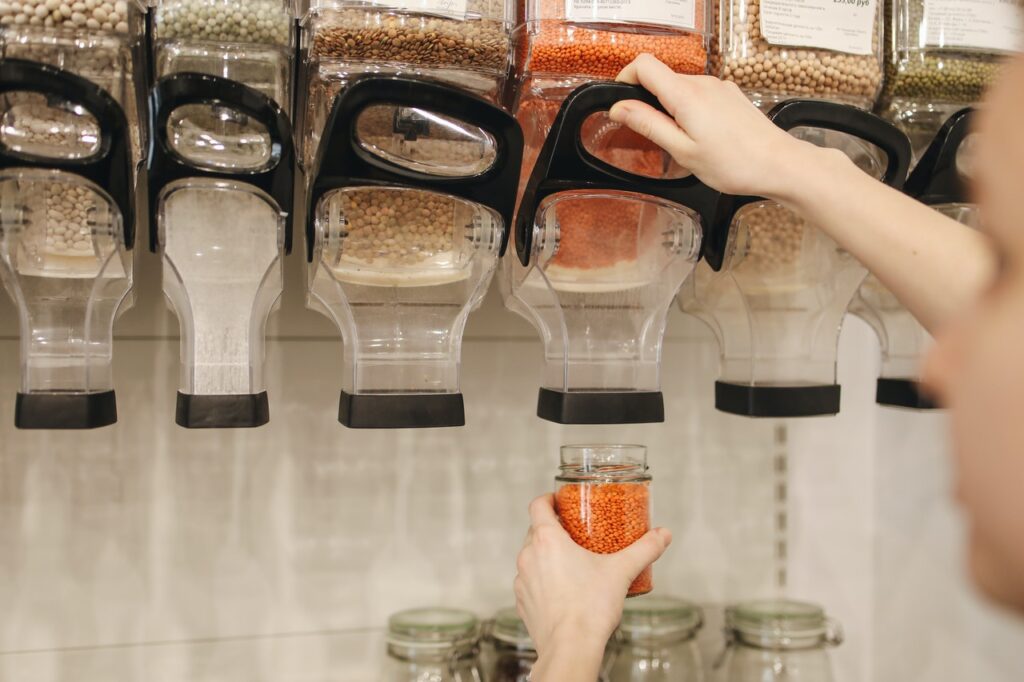
Chores can be the bane of our lives, but making them more efficient and less harmful to the environment can turn them into motivating tasks. Get the gloves on, turn up the music and follow our tips on how to do common household chores in an eco-friendly and fun way.
Reducing water usage
Install water-efficient appliances around the house if you can and turn the tap off when it isn’t needed. Only use what you need and get into the habit of doing just that. If you have a shower and a bath, mix up your routine every now and then. When bathing, fill up with hot water first below the halfway point, and then add in cold water so you can create the right temperature more efficiently. You may find you need less hot water than your first go.
Green laundering
The most efficient way to do your laundry is to wash with full loads to use less water and energy. But, if you find that you have a small load or just a few tea towels and clothing items that you could do with cleaning and using, don’t forget good old-fashioned handwashing. Wash with cold water first and use low temperatures for the washing machine.
Hanging washing out to dry
When clothes are washed, instead of using more energy with a dryer, hang them out on a washing line rope, clothes airer or ceiling airer. Better yet, when hanging laundry on a clothes line, use an organic, natural cotton clothes line or a jute clothes line.

Composting and food waste
Nowadays, we’re more apt at recycling and some local councils provide households with food caddies and green bins for our food waste. Make sure you’re always on top of the stock of your biodegradable food bin liners and that you’re using them! Food waste is also brilliant for composting, so you can help your garden as well as the environment.
Being more methodical with your car journeys
You may be the household taxi driver, dropping off everybody to their clubs, parties, schools and workplaces. On top of that, you need to do shopping trips and any other errands. Have you thought about your fuel wastage here and carbon footprint? Often, people get a bit complacent and end up heading out a few times in a short space of time to end up covering more mileage when they could have got a few errands done in one trip. Taking the time to plan out your journeys better, thinking about grocery shops and other trips that could be done on that same outing can help you save on fuel and money.
Using the same bags for your groceries
The constant increase in the prices of plastic shopping bags drills into us how important it is to minimise our plastic bag usage, so we mustn’t forget our own reusable shopping bags. You can get bags for life and fashionable or plain shopping bags that you can use time and again. You can even get shopping bags that come in small easy-to-carry-and-store bags. Use a rucksack to help carry loads on your back, and keep those reusable bags in the car ready.
Gardening for green waste
When you need to do the lovely chore of weeding, or clearing up garden waste, remember your green bins. All the green waste collected (which includes compostable food waste) gets transported to a composting facility in the UK, where the compost created gets used in farming, landscaping, horticulture, and as a soil improver.
Eco refills
There are many refillable cleaning products out there now. Many brands are creating pouches or big tubs of cleaning products like washing up liquid and hand wash for you to refill at home. Once the containers or pouches you have used to refill bottles at home are empty, you just simply send them back to the company.
Zero-waste shops
There are brilliant zero-waste shops on the rise, where you can go in and only top up what you need, therefore reducing packaging, whether it’s cereal, pasta, oils, toiletries etc. Some even offer eco-friendly cleaning products, like reusable bamboo towels, biodegradable coconut kitchen scourers, eco cleaning brushes, and biodegradable dishwasher tablets. So, from topping up fridges and cupboards to household cleaning, you can do it all in a significantly more eco-friendly way with zero-waste shops.

Sweep over vacuuming
Stick to sweeping where you can, especially on harder floors. We may turn to the vacuum out of habit, but you’ll be using more energy each time, when you may only need to sweep. Plus, when your household cleaning soundtrack is motivating you, sweeping won’t drown it out like a vacuum will, and a sweeping brush makes a great home concert microphone stand.
There’s also the mechanical carpet sweeper that doesn’t use power, but uses brushrolls to lift dirt – they’re also great for spot cleaning. And if you do use the vacuum, you can get energy-saving models; just remember to empty them out regularly so that they’re always working efficiently. If the vacuum is full or near to, it will have to work harder, using more energy.
Declutter and donate
Next time you’re doing a clear-out, think about donating or even upcycling. Fabrics and clothes work great for arts and crafts or house DIY projects. Decluttering is not only brilliant for the whole household to make more space and to improve organisation, but it works wonders on the mind and can be very therapeutic. Sorting and decluttering can create order in our lives and helps us organise our own minds. And you may be surprised what you find or forget what treasures you had stored away.
Eco-friendly cleaning
With vinegar, water and baking soda, you can get a whole lot of cleaning done without having to stock up constantly on fancy cleaning products, building up plastic in the house. Some examples are with:
Oven cleaning:
- Mix a half a cup of baking soda with a little water to make a paste
- Apply the paste on the inside of the oven, staying away from heating elements (gloves recommended)
- Allow the paste to sit for half a day
- Use a damp cloth to clean out the dried paste
- Spray some vinegar on any baking soda residue
- Wipe the oven clean with a damp rag
- Enjoy a sparkly looking oven again!
Cleaning the fridge:
- Create a solution of vinegar and water, using equal parts
- Empty the fridge’s contents
- Removes drawers and shelves
- Spray down the fridge with the vinegar-water solution
- Let it sit whilst you clean the drawers and shelves
- Then, scrub and wipe down the fridge
- Before putting back the contents and food items, make sure they are all clean on the outside
Condiments:
Again, using a vinegar and water solution, simply wipe down condiment bottles to erase germs and grub from those greasy hands that have passed them around.
Recycle pet bedding
Double check with your local council and recycling, but in general, pet bedding can go in your green food and garden recycling bins. So that’s hay, straw, chipped wood, sawdust and wood shavings that can all go in the green bin.
Microfibre cloths
Sponges can get the job done, but they often are disposable because of the germs they harbour and plastic deterioration. Paper towels aren’t always effective and you have to go through rolls and rolls. With microfibre cloths, you get high-quality cleaning because of the technology of the fibres designed to pick up and wipe away germs and dirt effectively. They’re also reusable and machine washable, so they’re more hygienic than sponges and retain fewer germs.
Now that you’ve got some inspiration in how to make your household chores more eco-friendly, it’s time to put that playlist on and get started! Then after, why not unwind with some relaxing candles – saving on electricity.
For natural and organic ropes, washing lines, airers, cords and twines for DIY or crafts, we’ve got it all here at Rope Source! Contact us for any more info on our products, or simply browse our site.
